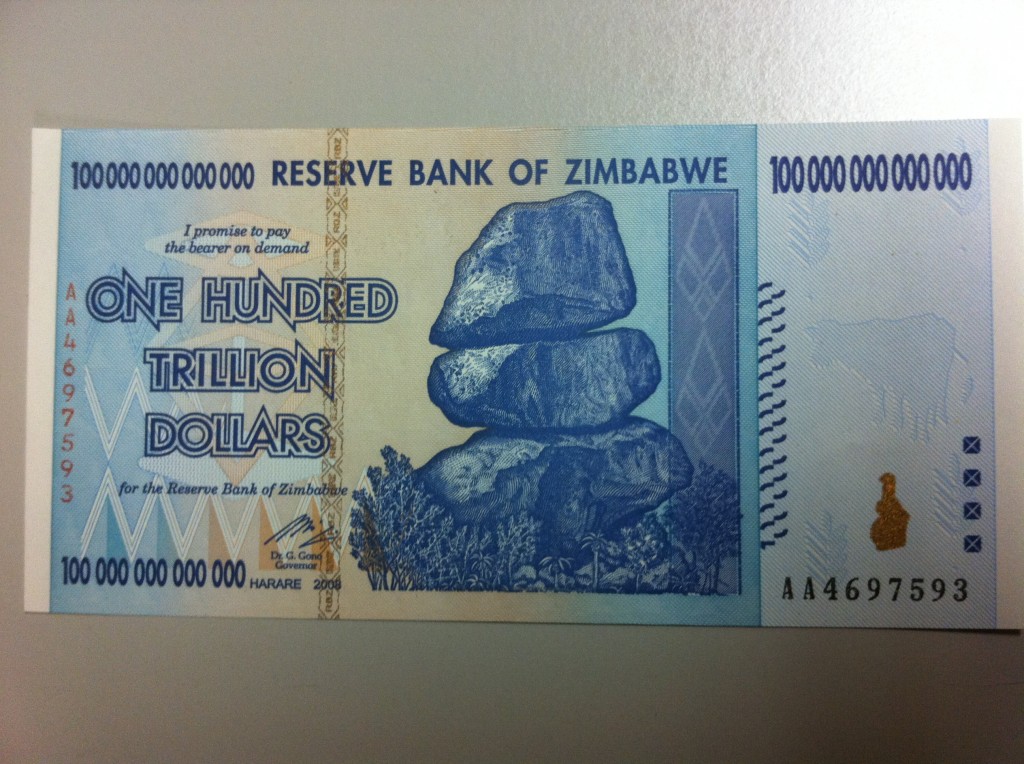This week marks the 23rd anniversary of Light Gray Wednesday. On October 19, 1987, the Dow Jones Industrial Average lost 23% of its value. Alas, no Goldman Sachs employees jumped out of their windows and ended up literally on Wall Street, which would have been awesome.
Over the course of one shocking trading day, the typical individual pension fund went from having 20 years worth of reserves to having 15. Stock options were instantly rendered worthless. Frightened American seniors started pricing cat food brands (Fancy Feast Classic Savory Salmon, 39¢ for a 3-oz. can.) High school juniors started downgrading their aspirations and applying to state colleges. The kids’ parents started smoking off-brand cigarettes – even the non-smoking parents – and saving up the frequent-buyer points. President Reagan and Congress were under pressure to do something to stop the carnage (more on this later.)
The first 100-point drop in the Dow began early in the morning: and this was back when the index itself was at barely 2000, less than one-fifth of where it stands today. Panicking investors copied the lead of previously panicking investors, selling their shares and forcing stocks to drop another 100 points by lunchtime. People on the West Coast woke up, assessed the devastation and followed suit. By the time investors in Honolulu and Anchorage were in a mood to eat breakfast, they’d seen their portfolios blown apart.
The drop wasn’t confined to the United States, nor did it originate here. It hit our shores after already overwhelming Hong Kong, not unlike Pai Gow. Once Hong Kong’s market crashed, so did the markets in Australia, then Western Europe. (An ancillary point: one of the biggest differences between international commerce of a generation ago and that of today is that back then, there was a 6000-mile swath ranging from Singapore to Tallinn that had no stock markets to speak of.) That very month, R.E.M. released “It’s The End of The World As We Know It”, a clear choice for the opening track on the soundtrack to the financial apocalypse that we were all going to have to face.
Who or what to blame? Favorite culprits included:
-computers. Those newfangled machines were blindly selling stocks, often to each other with negligible human input;
-an anti-inflation policy in the United States, though Europe had nothing similar and even if it did, something as gradual as that wouldn’t explain such a sudden drop in one day.
The real answer to what caused the crash is “it doesn’t matter.” What no one mentions is that within 2 days, the market had regained the vast majority of its losses. On net, the Dow actually rose that year. The relevant politicians at the time were either wise enough to know – or too busy to worry over the fact – that you can’t legislate opinions. Which is exactly what stock prices are.
So many of the indicators that we use to measure our prosperity are subjective, but especially the Dow. If you select a random public company, read its financial disclosures, and examine its income statement and balance sheet, a fair and reasonable stock price ought to correspond to that data. But that’s not necessarily the case. A profitable oil company with a rich history (BP) can suffer one huge setback and watch its market cap tumble. An over-the-counter company with almost no assets and no finished projects (Prime Sun Power) can trade at tens of thousands of times earnings, just because of its ecologically correct name.
The point? If you see unjustifiable movement, step away and breathe for a second. Investors sold off on the afternoon of October 19, 1987 for no better reason than investors were doing the same thing that morning, too. Playing lowball was, to put it simply, a fad. Just like bidding up the prices of online toy retailers would be 13 years later.
Collective rationality, or some form of it, usually wins out. In the case of Black Monday, it took almost no time at all for that to happen. The crises are rarely as important as the mundane, day-to-day activity, and the extremes rarely represent any market’s true level. Think about that when mortgage rates and home prices hit another nadir this week.











